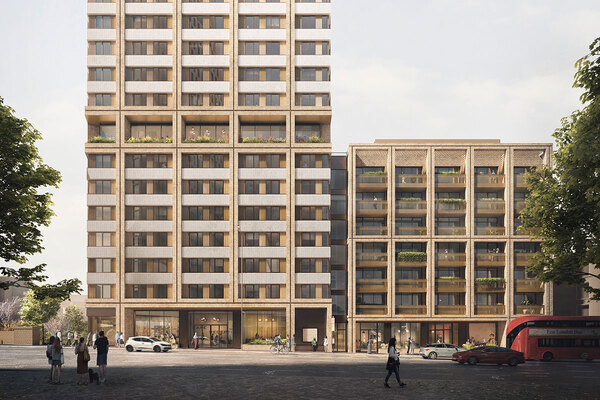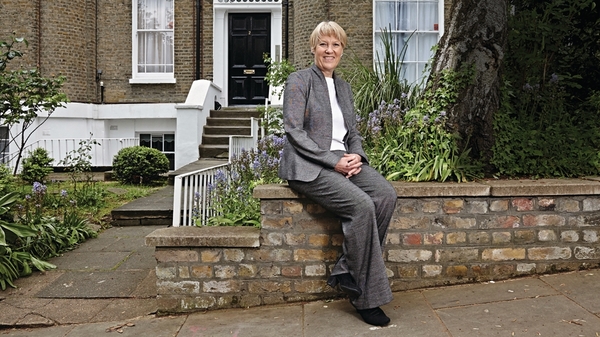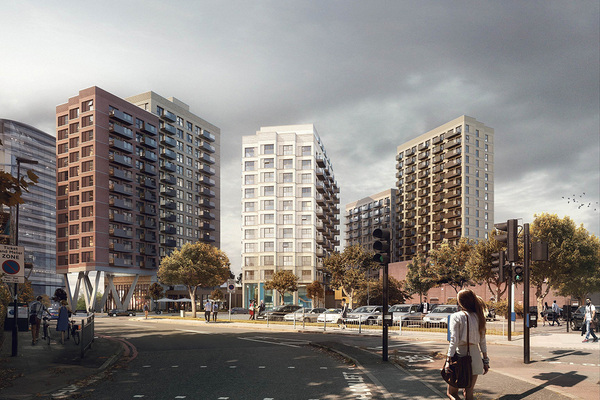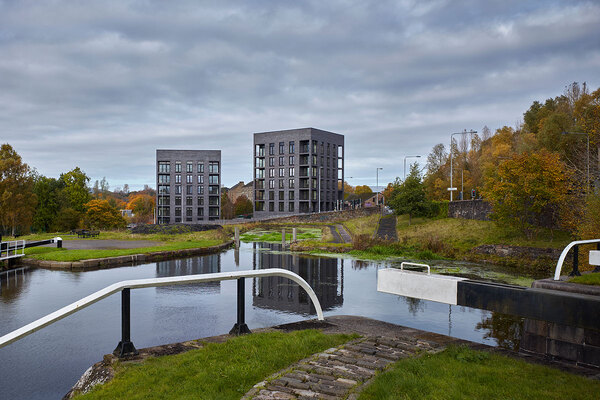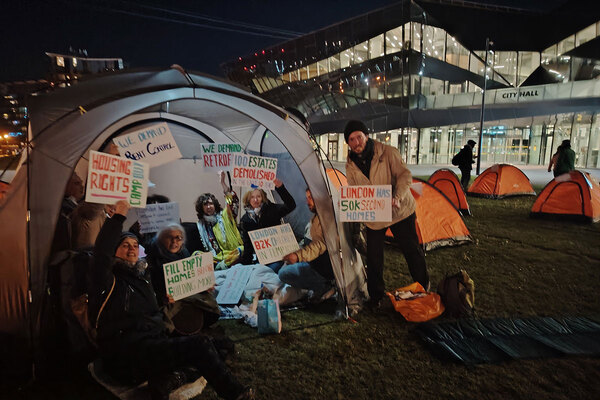You are viewing 1 of your 1 free articles
Housing association’s women-only affordable housing scheme in west London rejected by councillors
A specialist provider has said it is “disappointed” after its plan to build a women-only housing project at its west London headquarters was rejected by local councillors.
Hammersmith and Fulham’s planning committee turned down a proposal by the suffragette-founded Women’s Pioneer Housing (WPH) to replace 36 flats and its run-down offices in White City with 60 new homes.
The scheme, a joint venture with developer HUB and designed by architects AHMM, would also have seen an 18-storey co-living tower with 209 studios built on the 227 Wood Lane site.
However despite planning officers recommending approval, WPH’s scheme was rejected after a debate at Hammersmith and Fulham’s planning committee earlier this month.
The scheme was turned down because of the height of the tower and its impact on neighbouring properties, the scheme’s energy efficiency, and the “standard” of the proposed accommodation, according to minutes posted on the council’s website.
The project involved demolishing Brook House, an existing 36-unit block of flats currently home to WPH tenants, and its HQ. According to its website, the organisation did not have the funds to refurbish the buildings and the only solution would be to partner with a developer to “demolish the existing properties and provide new homes in their place”.
Originally WPH proposed a 29-storey tower on the site with space for 80 flats, offices and 350 co-living spaces. But the plans were reconsidered after complaints about the height of the block.
Despite the scheme being scaled back, it attracted opposition, including from the neighbouring borough of Kensington and Chelsea, which objected to the “harmful impact” of the 18-storey tower on the listed Kensal Green park and garden. Other local residents had raised concerns about the “risky” co-living element of the scheme.
Documents sent to the council show that the co-living scheme would have included studios of around 24 sq m, with a shower room, a separate living area, and small kitchenettes with a hob and a fridge.
The tower also included a communal roof terrace and an entire level given over to a range of shared kitchen facilities, capable of being used by 53 people at a time, plus dining areas including booths or more traditional tables.
The White City project is one of a number of co-living developments recently thrown out by local councillors. The model, which offers a student halls-style shared accommodation but with more upmarket shared amenities such as gyms or workspaces, is popular with build-to-rent developers.
However concerns have been raised over the small sizes of the rooms, which do not have to meet standards, and the affordability of the developments. In September, Wandsworth Council rejected a 547-home co-living tower by developer Greystar that included no affordable housing offer.
In a statement, HUB and WPH said they were “very disappointed” that the plans had been refused.
“The application followed four years of engagement with the London Borough of Hammersmith & Fulham, the GLA and the local community. As a result of this process, our proposals had been refined to address feedback, resulting in a significant reduction in height from 29 to 18 storeys, revised materiality, improved public realm and community benefits.”
“Alongside our partners Bridges Fund Management, an impact investor, we will now take some time to carefully consider our next steps.”
WPH, which manages more than 1,000 homes, was founded in 1920 by suffragettes who raised cash to buy large houses in Notting Hill for women of modest means. It is one of just two British housing associations where only women can be lead tenants for social housing tenancies.
Sign up for our development and finance newsletter
Already have an account? Click here to manage your newsletters
